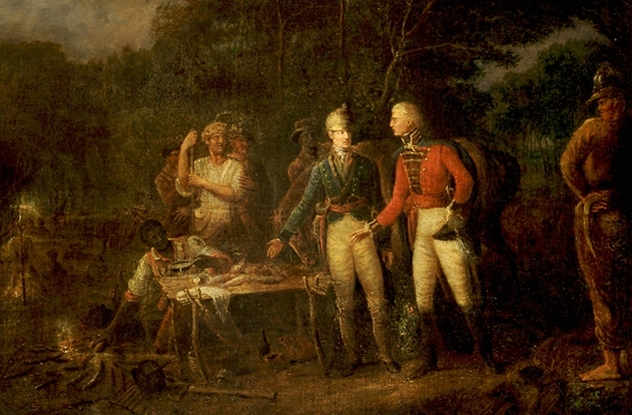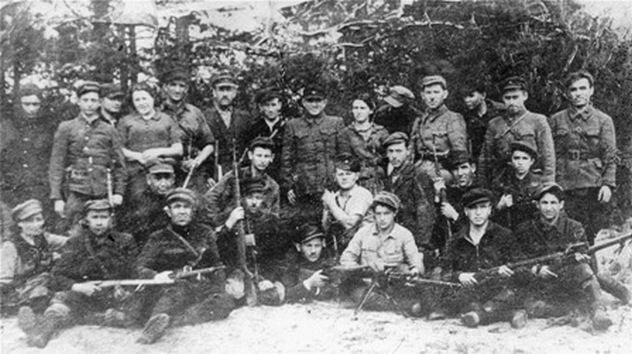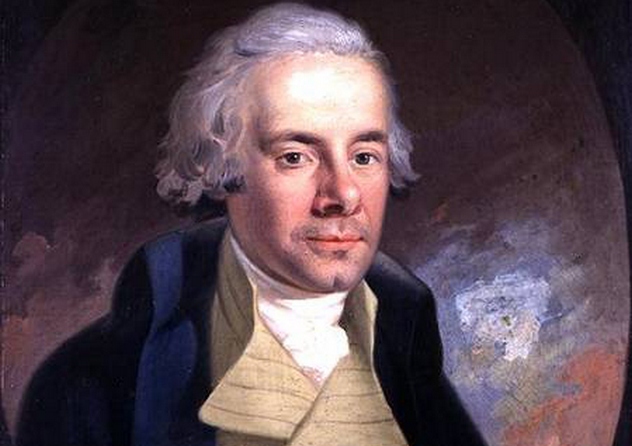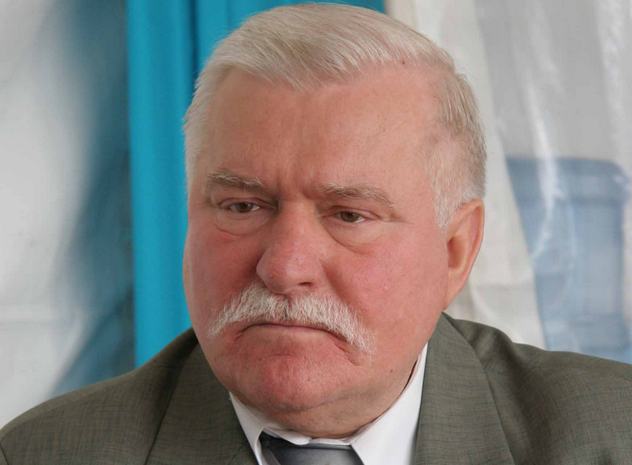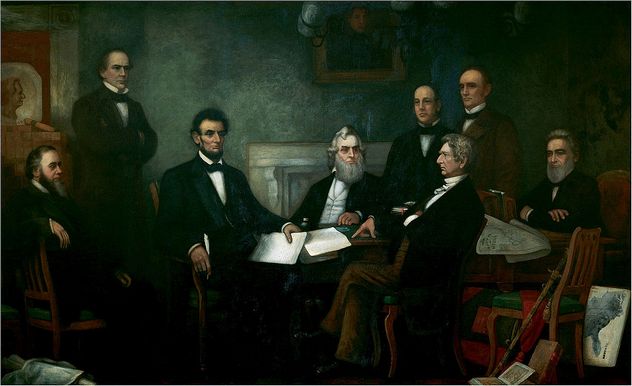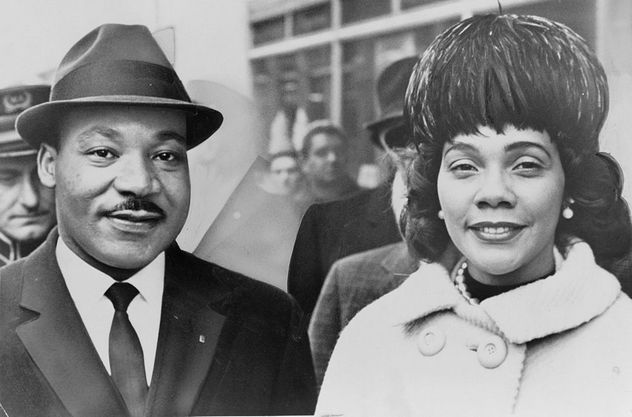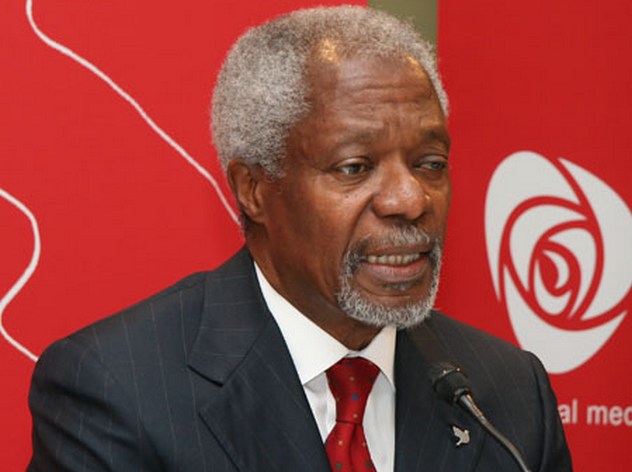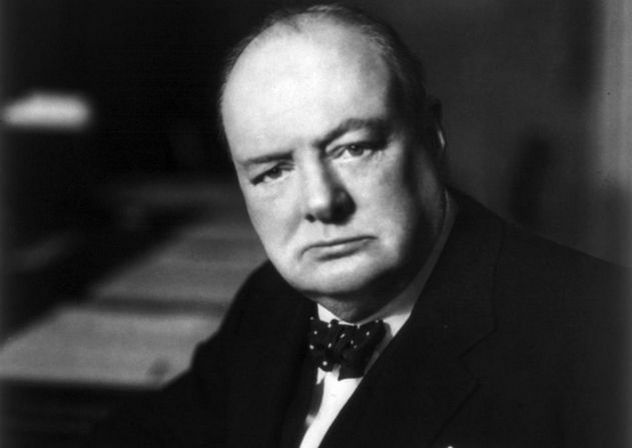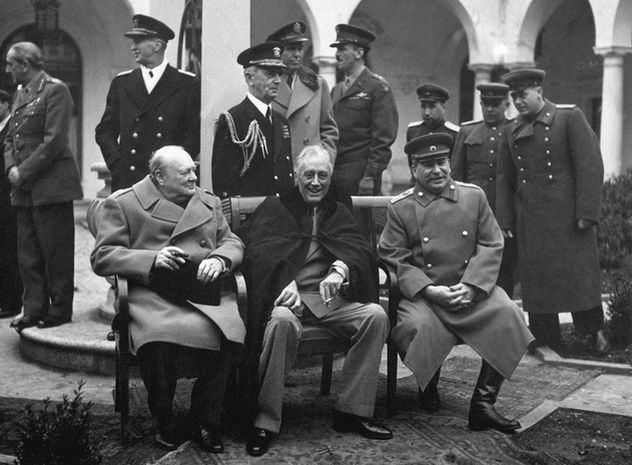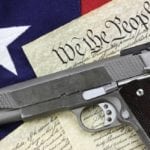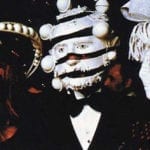Yet some of these heroes also had deep, dark secrets neatly hidden in the annals of history. In these little-known incidents, they have also been likened to the very enemies and institutions they sought to end.
10Aung San Suu Kyi’s Silence
Aung San Suu Kyi of Myanmar had been under house arrest multiple times from July 20, 1989 to November 13, 2010. A military junta had just risen to power in 1988, and Suu Kyi had become a threat. She had spoken of freedom from fear, stating: “It is not power that corrupts but fear. Fear of losing power corrupts those who wield it and fear of the scourge of power corrupts those who are subject to it.” She was awarded the Nobel Peace Prize in 1991 for “her non-violent struggle for democracy and human rights.” However, after her release, Suu Kyi has become a polarizing figure among the local populace. Critics have begun to wonder what dark secret ploys she has in mind, as she’s perceived to have begun supporting the goals of the military that had once kept her under house arrest. Numerous protesters pleaded with her to prevent the expansion of a mine partly owned by the military. The expansion would force the locals off their land. Instead, Suu Kyi bade the demonstrators to just disperse. Meanwhile, the Rohingya people, a majority of whom are Muslims, were given various restrictions on marriage, employment, education, and even movement within Myanmar. Citizens were not even allowed to identify themselves as part of the ethnic group during a national census. Since 2012, persecution of the Rohingya has left hundreds dead and thousands displaced. Aung San Suu Kyi was criticized for being less than emphatic—or perhaps virtually silent—when it came to the plight of the Rohingya people.
9Francis Marion’s Serial Rape And People Hunting
In The Patriot, Mel Gibson’s character Benjamin Martin is shown as a quiet family man whose uncanny fighting abilities and recruitment of militiamen wreaked havoc on the British regulars. The character himself was modeled after Francis Marion, known as “Swamp Fox” and highly regarded as one of the fathers of modern-day guerrilla warfare. Marion was instrumental in aiding the Continental Army in various engagements during the Revolutionary War. Yet little mention is made of Marion’s illicit activities during the war, as evidenced by the fact that these events were never shown in the movie. Marion was known to have regularly raped his female slaves and even hunted Native Americans. The latter was not done to retaliate against warbands or British allies among the Native American tribes. Rather, Marion regarded “Indian hunting” as a sport. Marion was also given explicit orders to execute any black people who were captured if they were seen working alongside the British.
8The Bielski Brothers And War Crimes
The story of the Bielski brothers has also become immortalized in Hollywood, particularly in the 2008 movie Defiance, starring Daniel Craig, Liev Schreiber, Jamie Bell, and George MacKay as the four brothers of the Bielski family. By early 1942, the brothers had formed an Otriad, a partisan detachment. Initially comprised of relatives and friends, their Otriad grew to involve thousands of Jews who fought against Nazi tyranny and survived the war. Sadly, the tale seems to have a darker secret. Investigators in Poland and Lithuania have delved into the tragic past of Eastern Europe to determine whether there were Jews or Jewish groups involved in war crimes. The Bielski brothers were suspected of committing various atrocities against Belarusians and Poles. Tuvia Bielski had allegedly ordered summary executions for known collaborators as well as fellow Jews who voiced their dissent. There were also reports that the Bielski brothers played an active role in the cold-blooded murder of at least 128 Poles in the village of Naliboki in 1943. Debate rages on about the role played by the Bielskis during World War II. Some suggest that such accusations are merely the work of anti-Semitic groups.
7William Wilberforce’s Complicity In African Slave Labor
William Wilberforce passed away on July 29, 1833, just three days after the final reading of the Emancipation Bill in the House of Commons. Wilberforce was one of the driving forces behind the abolition of slave trade in Britain. However, there is evidence that sheds new light on Wilberforce’s role in the slave trade in Africa. The Clapham Sect, an organization devoted to social reform that Wilberforce had been a member of, had practiced slavery—albeit with a different name—in Sierra Leone. In a 2007 biography of Wilberforce, Stephen Tomkins stated that evidence has shown how Wilberforce and the Clapham Sect captured slave trading ships bound for other parts of the globe. The traders would get a slap on the wrist, while the slaves themselves were sent to Sierra Leone for “apprenticeship,” a form of temporary slavery lasting up to 14 years. Colonial office papers spoke of how this system of apprenticeship—and the buying and selling of slaves in the capital of the ironically named Freetown—continued for years. All of this was done with Wilberforce’s full knowledge. In fact, when Wilberforce’s own protege complained of the matter, Wilberforce himself told him to “go quietly for the sake of his career.”
6Lech Walesa’s Blunt Remarks
Lech Walesa is held to be the man who gave Poland its freedom from the Soviet Union by heading “Solidarnosc” (Solidarity), a party composed of trade unions. Beloved by the West, Walesa has become a controversial figure in Poland in recent years, mostly owing to his candid remarks and clandestine past. Walesa was allegedly a Communist spy, code-named “Bolek.” Indeed, forged papers were submitted to the Nobel committee in the hopes that he would be disqualified. But the plan didn’t work, and Walesa was awarded the Nobel Peace Prize in 1983. Still, rumors persist even to the present day. As for his blunt and open remarks, we can definitely say Walesa would make even Prince Philip blush. Walesa is known for his staunchly homophobic rants, damaging his reputation in Poland. Walesa is known to have remarked that gay people “have to know that they are a minority” who should “not rise to the greatest heights.” He once mentioned that gay politicians should sit “behind the wall” during parliamentary sessions. One longtime friend of Walesa has told the story of his visit to Guatemala after a civil war had just ended. Walesa got on a podium and ranted about how the entire country was a mess and that the United States should have gone in sooner to fix everything. The military men in the audience gave him a standing ovation, while human rights activists wondered if it was merely the fault of the translator.
5Abraham Lincoln’s Drug-Induced Wrath And Deportation Of Slaves
Abraham Lincoln is often spoken of as the greatest and most humane of American presidents, yet critics have claimed that our views of the man have often been misguided due to fabrications of past historians. For instance, Lincoln is known to have always referred to black people using the N-word in various discussions with his staff. Some abolitionist leaders have stated that his Emancipation Proclamation “did not liberate a single slave,” since it only applied to the Confederate states and didn’t do anything to end the slavery in those states that didn’t rebel. Others also claim that Lincoln had another agenda, which coincided with the beliefs of other politicians that freed African Americans could not live with white people. Lincoln, prior to his assassination, was known to have espoused a colonization plan to send freed slaves to Panama, decades before the actual work on the Panama Canal even began. Prior to becoming president, Lincoln is also said to have been addicted to Blue Mass pills, antidepressants that alleviated—as a contemporary put it—“the cave of gloom” that Lincoln lived in. Researchers found samples of the pill and were astonished to discover that they contained 120 times the acceptable daily intake of mercury. As a result, Lincoln was prone to random acts of rage. He’s known to have shaken former aides “until their teeth chattered.” Lincoln, knowing the adverse effects of the pills, stopped using them as the Civil War began in earnest. His withdrawal may have also led to the president becoming calm in the face of overwhelming pressure.
4Martin Luther King’s Questionable Dalliances And Plagiarism
When it comes to people who fought for freedom, few could equal Dr. Martin Luther King Jr. and his deeds. King’s eloquence and calmness in his speech, coupled with his fiery rhetoric, gave the Civil Rights Movement a voice of passion that uplifted millions. It’s also worth noting that for all of King’s great deeds, he was not quite the perfect husband. He was actually a serial adulterer. The FBI had been wiretapping King due to suspicions of him having Communist ties. They never did find any credible evidence of his connivance with the Reds; they did, however, uncover a more personal scandal. King, who was often away from home, had plenty of female companions. In fact, on April 4, 1968, the night he was assassinated, King had spent the last hours of his life with one of his lovers, member of the Kentucky State Senate Georgia Powers. King’s advisers and security prevented Powers from going near the ambulance, as it would have tarnished his legacy. Also, while there is no denying King’s brilliance, there were a few doubts about his educational background. For instance, there have been rumors that his “I Have a Dream” speech was plagiarized. A prominent black pastor, Archibald Carey, delivered an impassioned address during the 1952 Republican National Convention. Some of the similarities between Carey’s speech and that of King’s, which was given 11 years later, included the first verse (“My country ’tis of thee”) as well as the usage of various locations in the United States and the phrase “Let freedom ring.” But these allegations were considered quite overblown and the similarities merely circumstantial. What King did plagiarize were portions of his dissertation for the PhD in Theology from Boston University titled “A Comparison of the Conceptions of God in the Thinking of Paul Tillich and Henry Nelson Wieman.” Several portions of his paper were taken verbatim from sources he didn’t properly attribute (and in some cases, he didn’t even try). This was, by all accounts, plagiarism. This fact virtually escaped detection during his lifetime, as his professors more or less saw him as “an earnest and even gifted student.” However, had the story broken out, it would have likely fueled more criticism from his opponents and doubters. In 1991, a committee investigated the matter and concluded that, while portions of his work had been plagiarized, his degree should not be revoked because it made “an intelligent contribution to scholarship.”
3Kofi Annan’s Mismanagement
In 2001, the United Nations and its Secretary General Kofi Annan received the Nobel Peace Prize “for their work for a better organized and more peaceful world.” Controversy surrounded the decision for years to come. Critics decried the role of the UN Security Council and its 1996 “Oil-for-Food” program, which allowed Iraq to sell oil in exchange for food and other basic necessities. According to the CIA, the UN’s ill-advised program and Kofi Annan’s mismanagement of the situation allowed Saddam Hussein to earn over $12 billion from kickbacks and illegal oil smuggling. Similarly, unethical conduct of UN employees further exacerbated these problems. Annan, who had been the Assistant Secretary-General for Peacekeeping Operations during the mid-’90s, was also criticized for his less than competent actions during Rwandan Genocide, where an estimated 500,000 to 1 million civilians were killed. In early 1994, Major General Romeo Dallaire, head of the United Nations Assistance Mission for Rwanda, was told by a trusted source that the Hutus were planning to massacre the ethnic Tutsis as well as attack Belgian forces in the region. Dallaire reported to his superiors, expressing his concern and suggesting a possible preventive raid on arms caches. On that same day, Dallaire received a reply from the desk of Annan himself. Dallaire was told that no raid was to be conducted, and that he was to inform the president of Rwanda about what he had learned from his source. Dallaire was surprised at this order, since it was the president’s men who were planning to massacre the Tutsis in the first place.
2Churchill’s Love Of Bombing And Poison Gas
War Secretary Winston Churchill already had the debacle of Gallipoli in World War I tucked firmly under his belt. When the Arabs and Kurds revolted after the Great War, Churchill had contemplated the use of bombs filled with mustard gas to reduce the necessary costs in men and materiel. Attacks on the hapless tribesmen who rebelled against imperial rule escalated, but Britain kept pounding them with bombs and machine-gun fire from airplanes. Even T.E. Lawrence was aghast at the violence, stating that “the people of England have been led in Mesopotamia into a trap from which it will be hard to escape with dignity and honor.” When the Germans accidentally bombed London on August 24, 1940, Churchill called for an “absolutely devastating exterminating attack by very heavy bombers from this country upon the Nazi homeland.” Thus, wide-area bombing characterized the British air campaign against Germany, culminating in the firebombing of Dresden. In 1944, Churchill attempted to revive the use of poison gas as a weapon of war. In one of his memos, Churchill stated that he would not use poison gas unless it was a matter of life or death for Britain or it would shorten the war by a year. Churchill wanted to have the matter of “drenching” Germany with poison gas studied by sensible people—not by “psalm-singing uninformed defeatists.” Indeed, he likened the use of these deadly weapons to changes in fashion—like women changing between long or short skirts.
1The West Gives Stalin Europe On A Silver Platter
The image you see above bears the jovial faces of three leaders who stood against the Axis. Two of them have become synonymous with freedom and democracy, while the last one has become known as one of history’s greatest murderers. The phrase “the enemy of my enemy is my friend” has never been as apt as at the meeting of these three men. Behind those smiles was a terrible secret. True, the 1944 Yalta Conference did give us the partition of Germany and split most of Europe into separate spheres of influence, but beyond that was an even greater crime: slave labor. The idea that slave labor could be counted as “war reparations” had been discussed the previous year, and it specified the use of “forced German labor outside of Germany.” It’s a misconception to think that the results of the Yalta Conference were frowned upon by top American officials. On the contrary, it was seen in a positive light. Roosevelt himself had once said that “reparations should be exacted in manpower and equipment.” After all, better that Germans be used for slave labor than American money be used for charity purposes. It was not only the defeated and imprisoned Germans that were forced to work in the most arduous of conditions in Western Europe and (if luck had truly left them) in the Soviet Union. Some would claim that another by-product of Yalta was the repatriation of millions of Russian citizens who have fled their homeland for one reason or another. Whether they were simply escaping the purge, were once held captive by the Wehrmacht, or were outwardly opposed to Stalin, it did not matter. If they were Russian and they were found in Allied lines, they were shipped back east to whereabouts unknown—perhaps to Siberian gulags or hastily dug ditches. The word “appeasement”—vilified before the war began—characterized the generous offers of the West. Perhaps that’s also the reason why Uncle Joe is smiling. In Yalta, he was basically handed the lives of millions of people on a silver platter. Jo believes that nobody is perfect, after all, we are only human. Still, it’s worth noting that as history goes along, we tend to emphasize mostly the good, yet overlook the bad when it comes to beloved figures. What do you think? Let him know via email or in the comments section.

